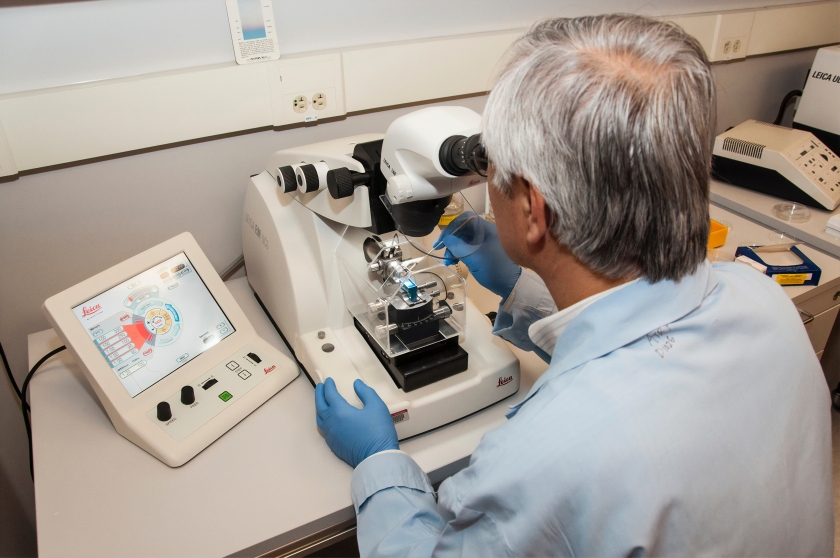Mesothelioma Clinical Trials Test Targeted Gene Therapy
By Warren Miller. 26th July 2022
Malignant Pleural Mesothelioma (MPM), which is caused by asbestos exposure, is a rare cancer of the lining of the lungs with no cure and an average survival rate of less than a year. The main therapeutic strategies for MPM are surgery, chemotherapy, and radiation therapy.
The two main surgical approaches for MPM are extrapleural pneumonectomy, in which the lung is removed and pleurectomy/decortication, in which the lung stays in situ. Chemotherapy usually consists of a platinum-based chemotherapy, such as cisplatin, often combined with a folate antimetabolite, such as pemetrexed. More recently, immunotherapy has emerged as a possible therapeutic strategy.

Evidence suggests that single modality treatments are not an effective therapeutic approach for MPM.
Therefore, researchers have started to explore different multimodality treatment approaches, in which often combinations of surgery, chemotherapy, immunotherapy, and radiation therapy are investigated.
Although this multimodal treatment is optimal, less than a third of patients qualify for aggressive surgery and only a small percentage are helped significantly by immunotherapy combination of Opdivo and Yervoy. There is plenty of room for mesothelioma treatment improvements.
Clinical trials Focus on Genetic Mutations
For some patients, the future of mesothelioma treatment may hinge on clinical trials that started earlier in 2022 to study new drugs targeting specific genetic mutations.
The first is from Tango Therapeutics - a biotechnology company committed to discovering and delivering the next generation of precision cancer medicines.
The U.S. Food and Drug Administration has cleared a new drug, a synthetic lethal small molecule inhibitor of a protein called arginine methyltransferase 5 designed to selectively kill cancer cells with an methylthioadenosine phosphorylase (MTAP) genetic mutation. These mutations occur in 10% to 15% of all human cancers, including non-small cell lung cancer and mesothelioma. The safety and efficacy data from these trials is expected in the first half of 2023, with enrolment limited to patients with confirmed MTAP tumours.
The second trial is from Ikena Oncology, who are sponsoring the first human clinical trial studying IK-930, another small molecule agent, for advanced solid tumours including mesothelioma - for patients with another genetic mutation deficiency - Neurofibromatosis Type 2 (NF2). Patients with NF2-deficient malignant pleural mesothelioma account for approximately 40% of mesothelioma patients worldwide. IK-930 provides a novel targeted approach to address the underlying biology driven by the genetic alterations that cause cancer pathogenesis.
Research Advancing the Treatment of Mesothelioma
The lack of an effective treatment for mesothelioma in the past has been partially attributed to specific genetic mutations and an inability to identify biomarker targets. Biomarker testing has advanced considerably and become more accepted with mesothelioma, allowing new synthetic drugs to better target personalised, genetic profiles.
Both of the clinical trials involve medication given orally and are designed to determine effective dosage levels and tolerability, along with preliminary anti tumour activity.
A multi centre study of TNG908 and the MTAP mutation will be hosted by NEXT Oncology in either San Antonio or Fairfax, Virginia. The Ikena trial of IK-930 and the NF2 deficiency is being done at a variety of locations in the US including Michigan, Boston, Philadelphia, Houston and San Antonio.
Earlier personalized therapy targeting a different mutation showed considerable promise with mesothelioma. In a phase II trial at multiple sites, patients identified with the BAP-1 genetic mutation received the novel protein inhibitor Tazemetostat in a second-line setting and more than doubled the normal median disease control rate.
Genetic testing has changed the face of overall cancer care in recent years, although patients with MPM have seen little benefit so far. However, many oncologists believe it represents the future of oncology and the future of mesothelioma treatment.
If you have any questions, or would like some expert advice of claiming compensation for mesothelioma, please call us on the number below and ask for Kathy or Warren

Source
1.Safety and Tolerability of TNG908 in Patients With MTAP-deleted Solid Tumours
https://clinicaltrials.gov/ct2/show/NCT05275478
2. Oral TEAD Inhibitor Targeting the Hippo Pathway in Subjects With Advanced Solid Tumours
https://clinicaltrials.gov/ct2/show/NCT05228015
Author
Warren Miller MSc. BSc
Claims manager and website author
Warren has been assisting victims of Mesothelioma and asbestos cancer for more than 18 years. He is also the senior technical author of this website, responsible for sourcing legal and medical material beneficial to those who may been recently diagnosed with an asbestos disease.. Read more >













